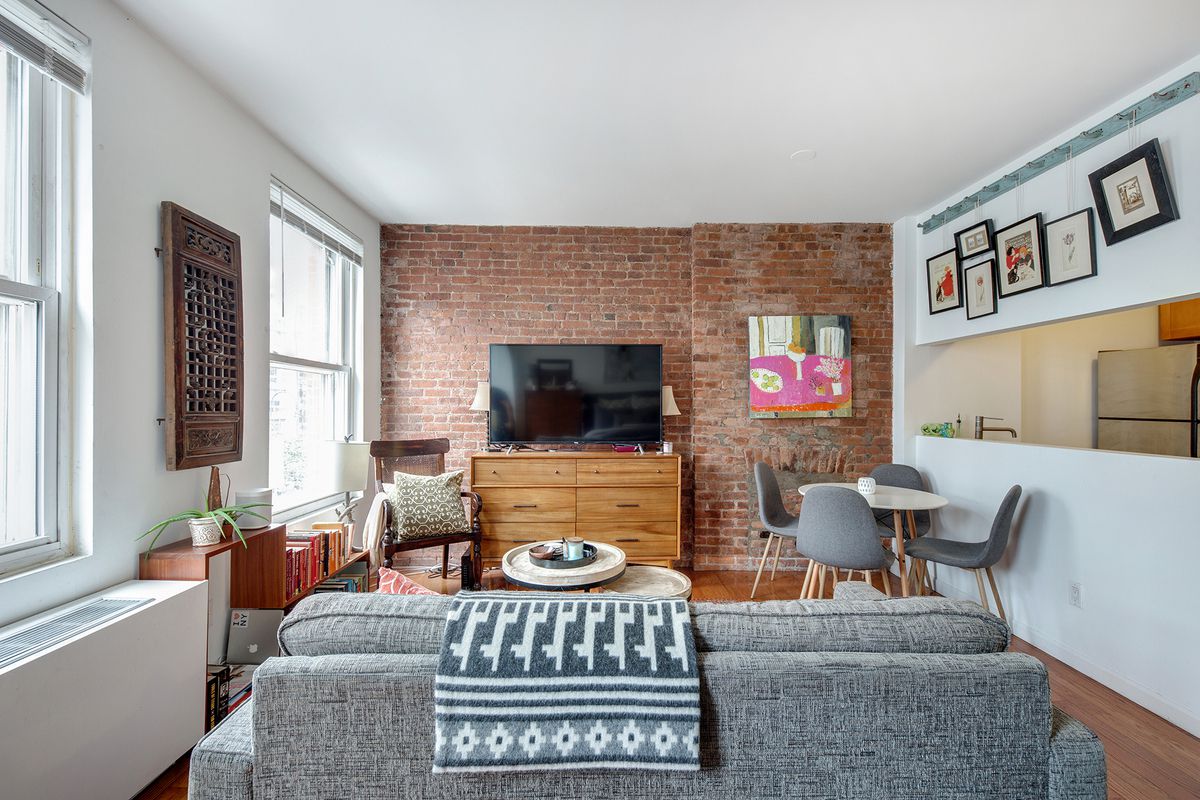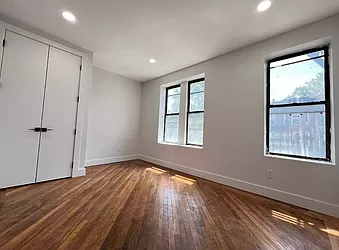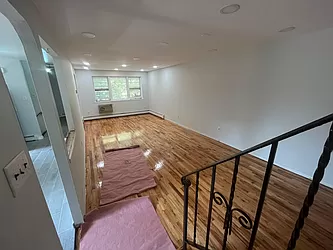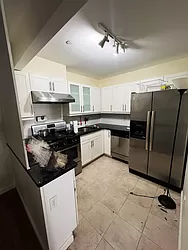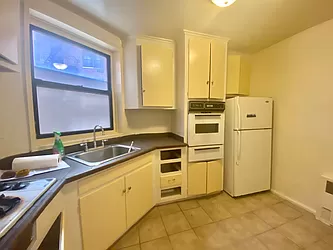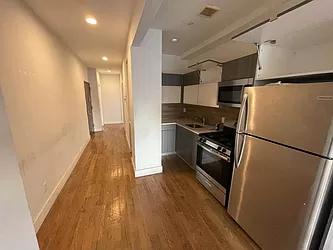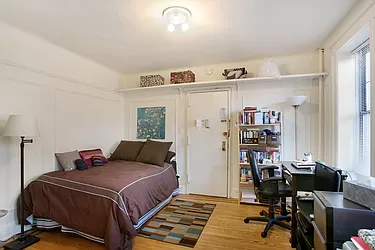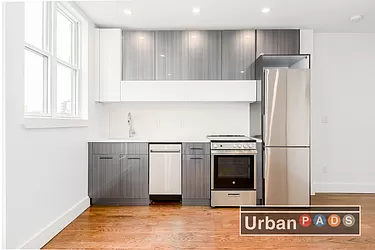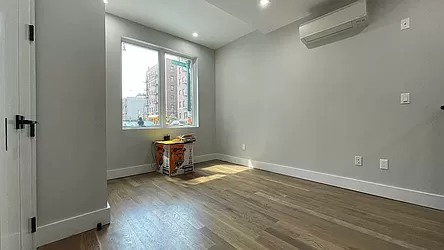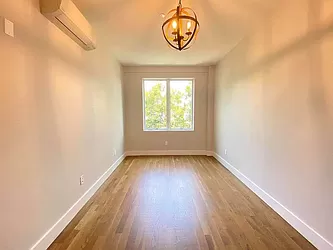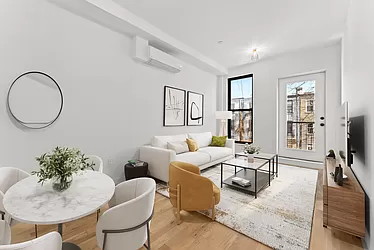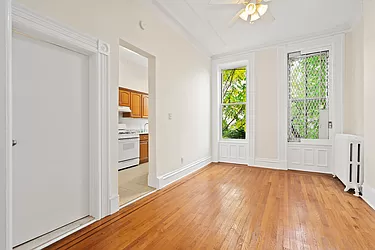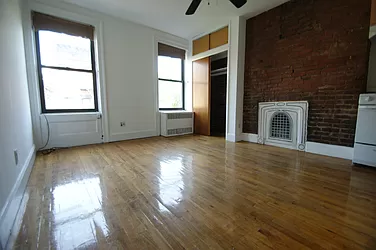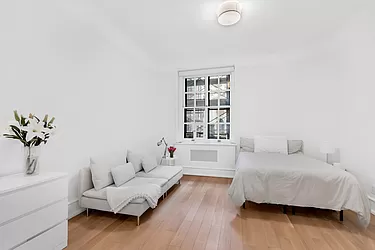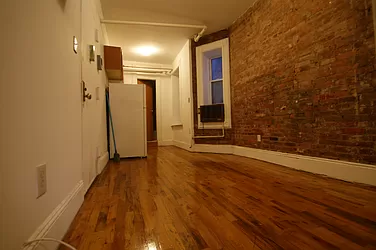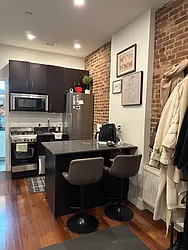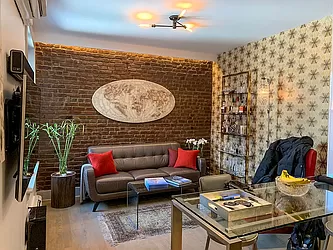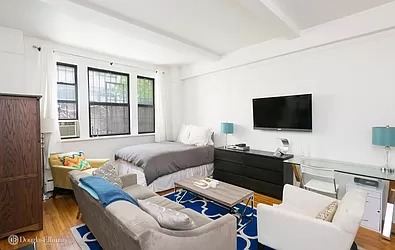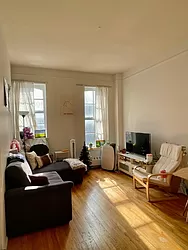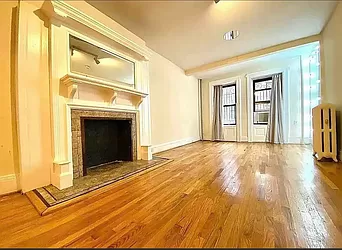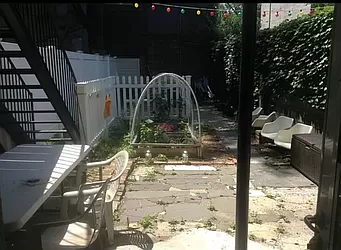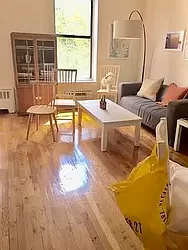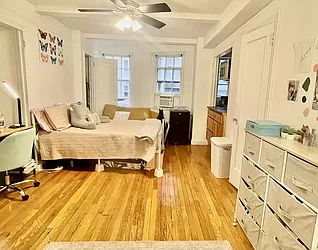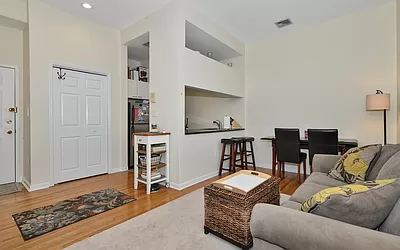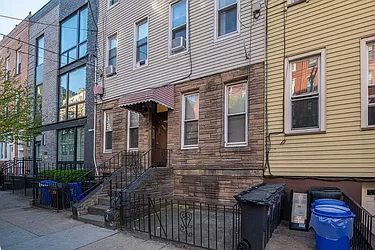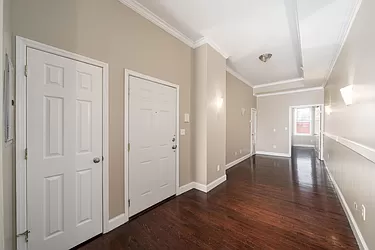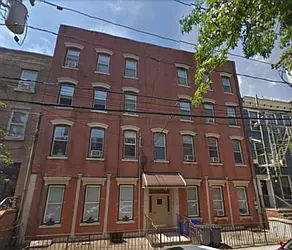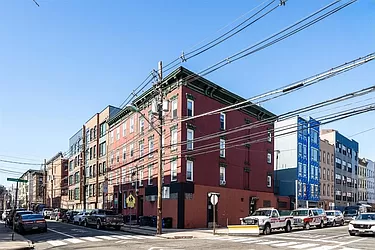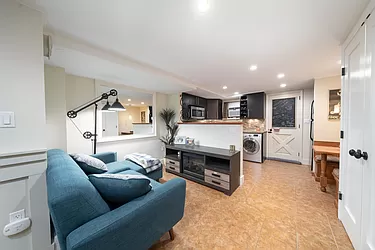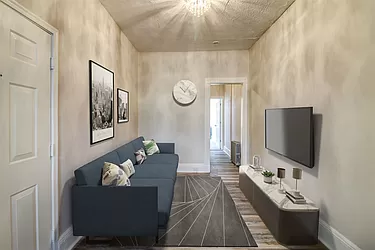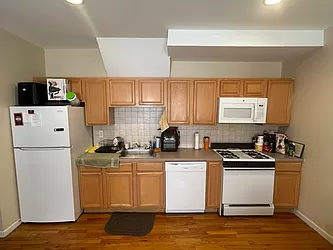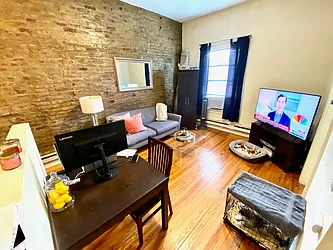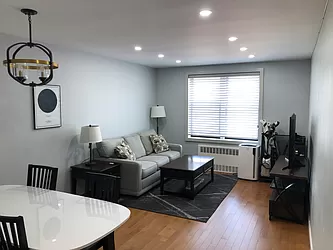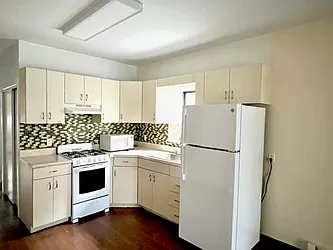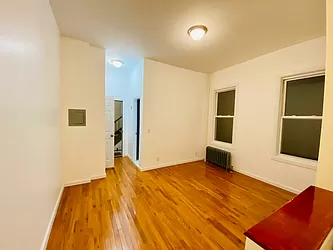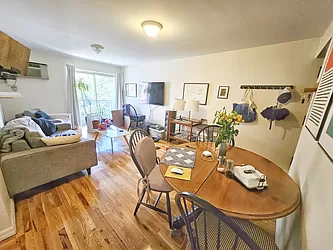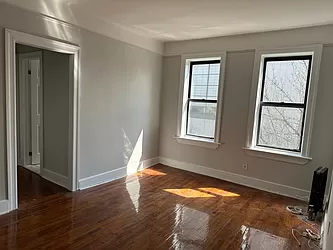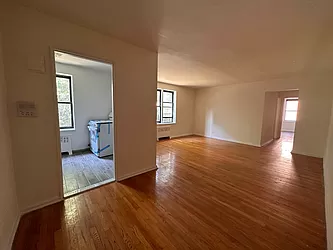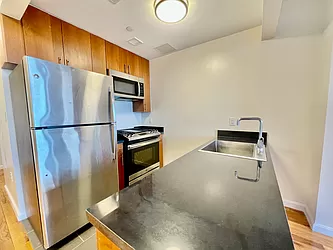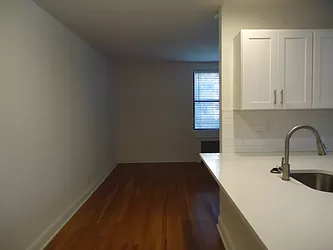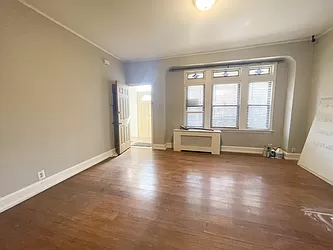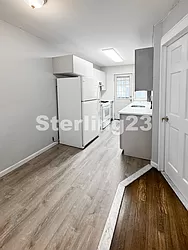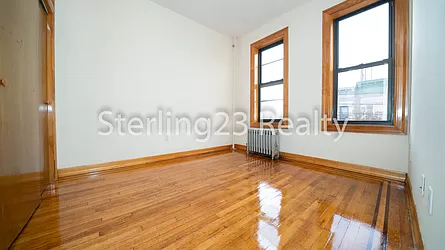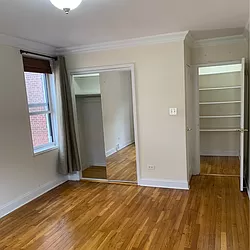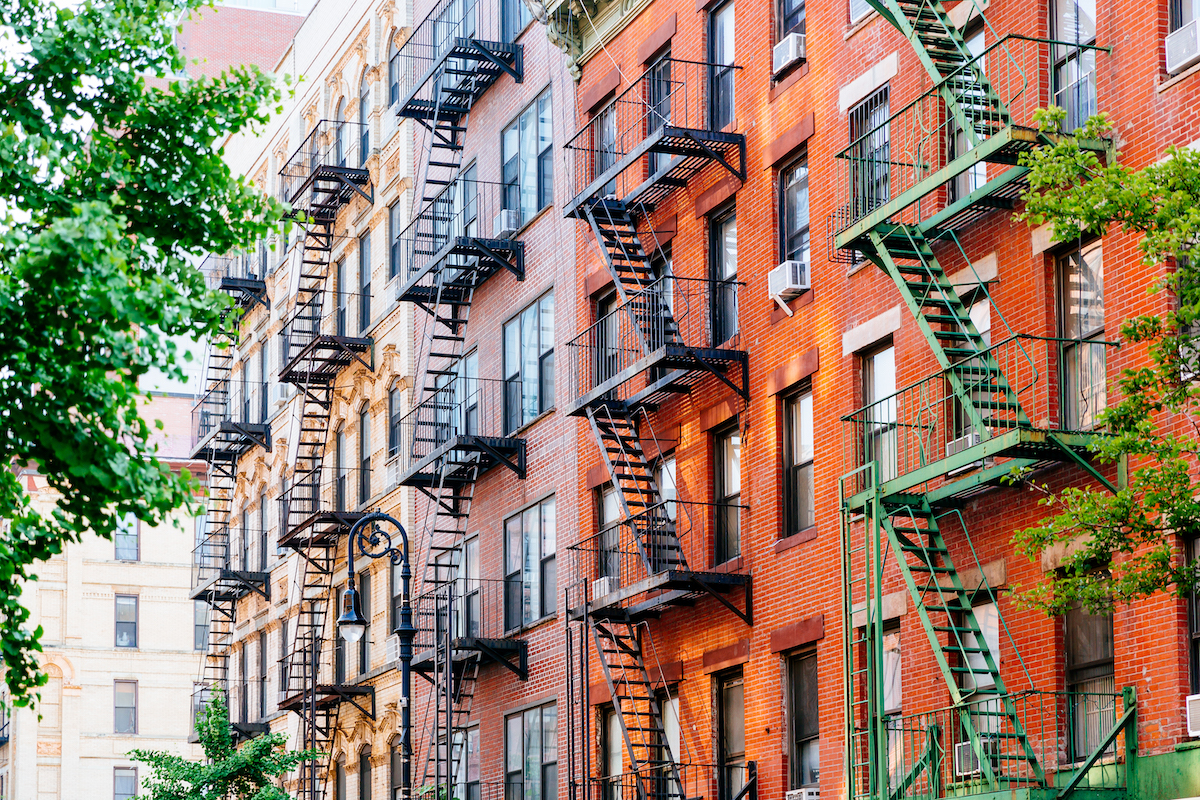Renting in NYC: The Ultimate Guide
Finding and maintaining your first New York City apartment can be nothing less than daunting for the uninitiated. It’s not exactly a Friends episode. The good news is, more than 8 million people live in New York City, and about 66 percent of them are renters. And if you just joined team renter, congrats! To help kick start your journey, we gathered answers for some of the top questions new apartment dwellers ask. Here you will find practical tips for NYC renters.
Brooklyn Rentals Under $3000 on StreetEasy Article continues below
Do You Need Renters Insurance in NYC?
Look closely at your lease — many buildings require that NYC renters have renters insurance. And why not? It will offer a little security if the pipes burst and soak your belongings or if a thief sneaks into your place and takes off with your new flatscreen. Getting insurance means you may sleep better at night. You’ll want to read the fine lines of your policy to figure out what exactly is covered. Many will replace the purchase price for your prized possessions, even if you happen to leave something on the subway.
“Renters insurance is a personal choice, but it does make sense,” Gillian Anderson-Mann, from Corcoran, says. You can get policies inexpensively. “I’ve heard of firms offering policies from $5 a month. It’s the cost of coffee, so why not?”
Another reason to appreciate insurance is one of our top tips for NYC renters. If someone trips on a rug at your cocktail party and then sues you for their medical bills, most policies include personal liability.
Manhattan Rentals Under $3000 on StreetEasy Article continues below
What Are Your Rights as a Renter?
Things happen. Maybe you spotted a bedbug under your bed skirt(!). Perhaps your apartment has been nothing less than frigid this winter. One of our top tips for NYC renters is that as a tenant, you have rights. Tenant protection laws exist to ensure your safety and security. Notably, your living space must be kept to certain conditions. No horror movies here!
At a bare minimum, you’re entitled to heat, hot and cold water, good lighting, and security measures, for instance, a working front door lock and key. “New York has a heating season, starting in October and ending in May, and that’s important,” says Kate Ehrenberg, hotline coordinator for Met Council on Housing. The telephone hotline is free to call for any NYC tenant. Put simply, when the temperatures drop below 55 degrees, tenants are entitled to adequate heat.
Landlords are also responsible for other things, including window guards upon request and fixing peeling paint. In fact, landlords are required to paint occupied apartments in multiple dwelling units every three years and private dwellings as necessary. Not even Martha Stewart has it that good.
Hoboken Rentals Under $3000 on StreetEasy Article continues below
Can Your Landlord Enter Your Apartment at Any Time?
No, your landlord can’t enter your apartment whenever they want. “Unless it is an emergency, your landlord has to give you 24 hours’ notice of intent to enter, and you are allowed to reschedule,” says Ehrenberg. What qualifies as an emergency might include a fire, flood, or if a neighbor hasn’t seen you in such a long time, they’re worried about a health emergency.
But they *can* enter if they’ve given you appropriate notice when they have a good reason to come in. (To make repairs or show the place to a possible future tenant or purchaser). Can’t make the date and time they’ve chosen? “You can give them other times to come, and that’s your right,” Ehrenberg says.
What if You Need To Break Your Lease?
No NYC renter is immune from the lure of the next great adventure. Maybe you got a job offer you can’t turn down in Singapore. Or you spotted your dream apartment in a rent-stabilized beaux-arts apartment on the Upper West Side. (Hey, you can dream!) How do you break your lease?
Listen, if you can learn how to negotiate rent on a NYC apartment, you can definitely try to negotiate your way out of it. Top tips for NYC renters include; first, you’ll want to put your request to vacate the apartment in writing. While financial difficulties aren’t legally a reason to skip out on your lease, when learning how to break a lease in NYC, you may unearth other applicable ones. Like if they’re not keeping up with repairs on the place or if you have faced a Covid-19 related hardship.
Queens Rentals Under $3000 on StreetEasy Article continues below
How Do You Get Your Security Deposit Back?
All NYC renters have heard of that shady landlord that pockets deposits. The reality is, they legally can’t keep your deposit except for these two reasons: using it to pay any unpaid rent or to fix a damaged apartment interior that goes beyond normal wear and tear. (Keep it clean, people — overwhelming mildew in the bathroom, pet stinkiness, and soiled carpets can mean you’ll lose your deposit fast).
Take pictures when you move in and when you move out, of both the rooms themselves and itty bitty details (like those scratches the last tenant’s cat, Mr. Sniffles, left in the wood floor.) If you document everything, it’s that much harder for them to try to make you pay. And be sure to clean the place before the final walk-through. How clean, you ask? Just pretend your grandmother is coming to stay and you want to impress her with your fancy big city life — and make it shine like the top of the Chrysler Building.
How Do You Sublet Your Apartment?
If everything you learned about subletting is from binge-watching “Friends,” you may want to do some quick research on how to find a roommate in NYC. Preferably one that cleans like Monica and makes you laugh like Ross. Rather sublet your whole place than living with somebody else? Most NYC renters would suggest reaching out to friends and family to find a subletter you can trust before moving on to sites like Craigslist.
When you find a potential subletter, think like a landlord. Go over their financials and references with a fine-tooth comb, in addition to an interview. You’re allowed to sublet as a NYC renter. But you do need to run the request by your landlord in a certified letter with a return receipt request. Format letters like this abound online. They can only reject the subletting scenario if they have reasonable grounds (like, if the potential subletting tenant has bad credit).
Ehrenberg has one other important piece of advice for NYC renters: “If you’re in a building on the older side, and it has six or more units, send away for a rent history [at HCR.NY.Gov].” In about two weeks, you’ll find out if the unit is rent-stabilized — hey, you never know. As Anderson-Mann said, this is New York — and anything can happen!
